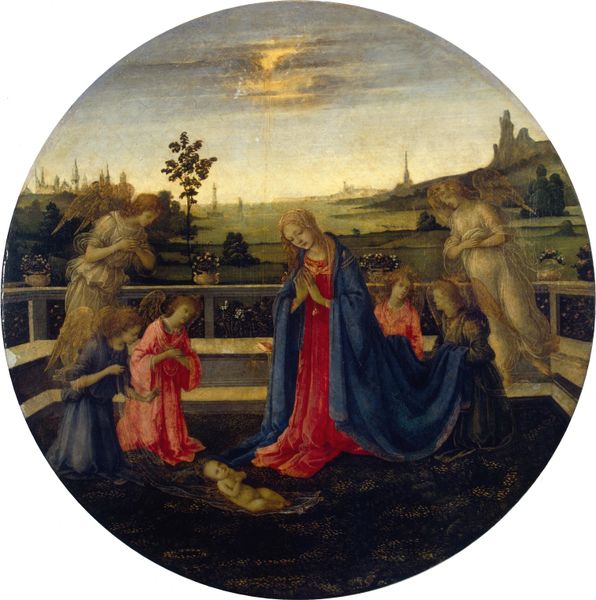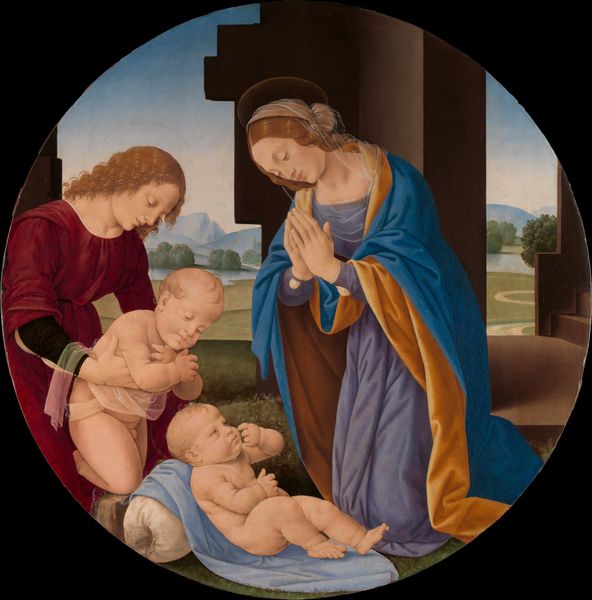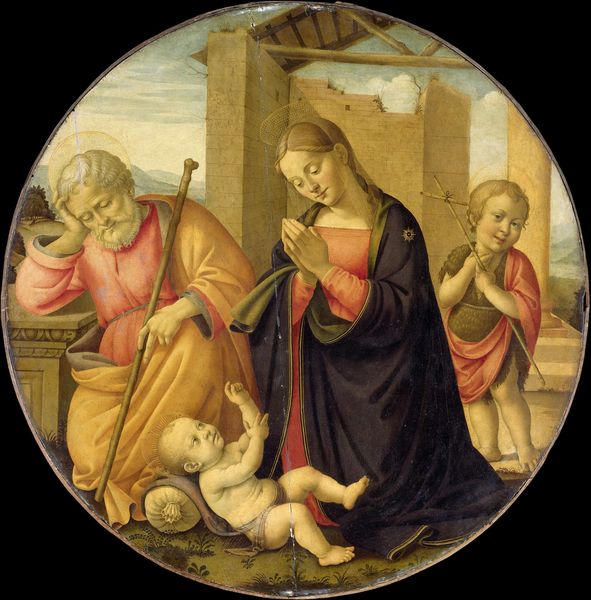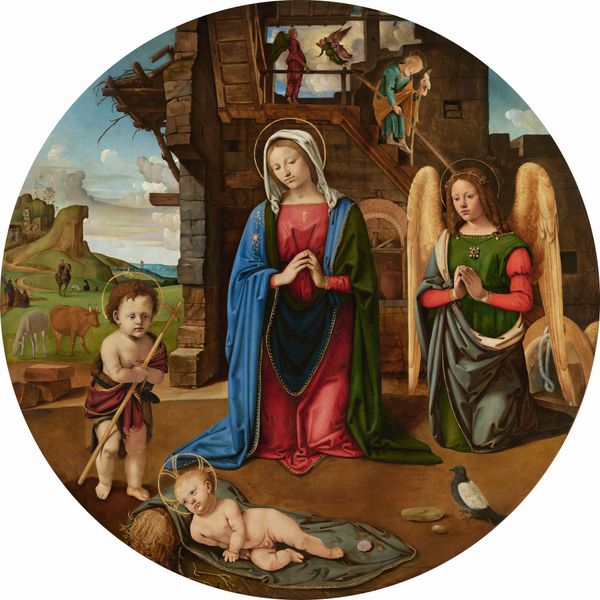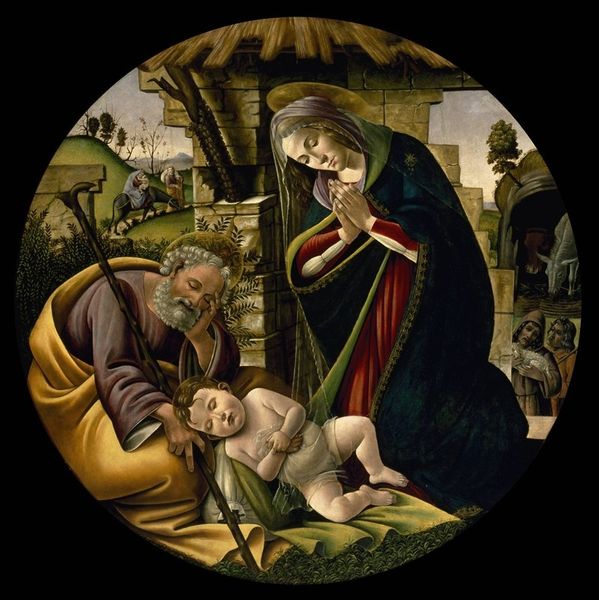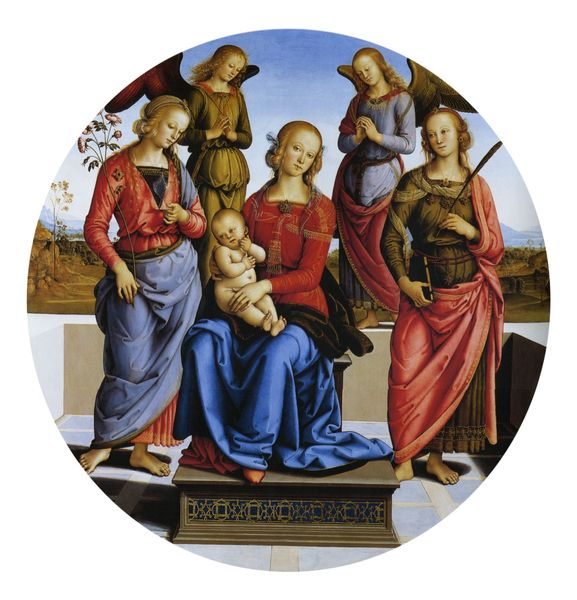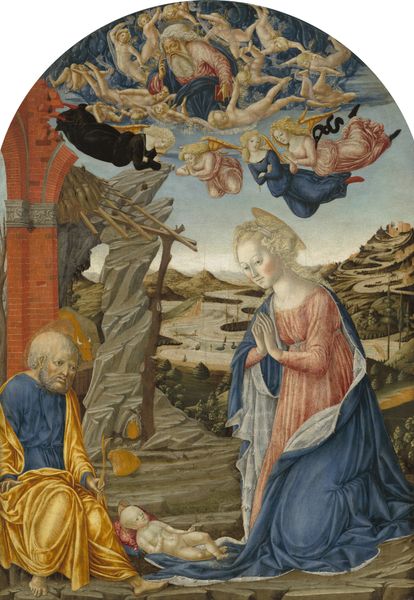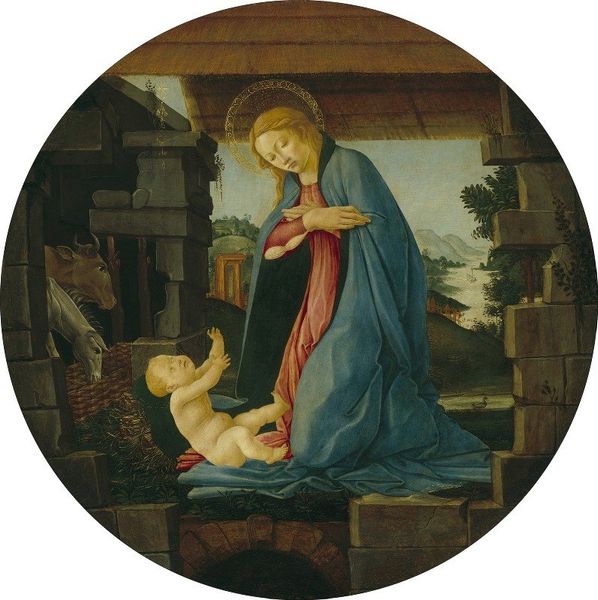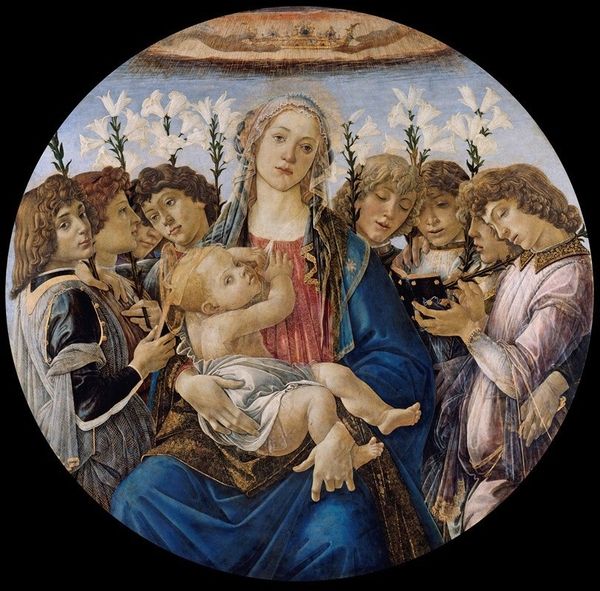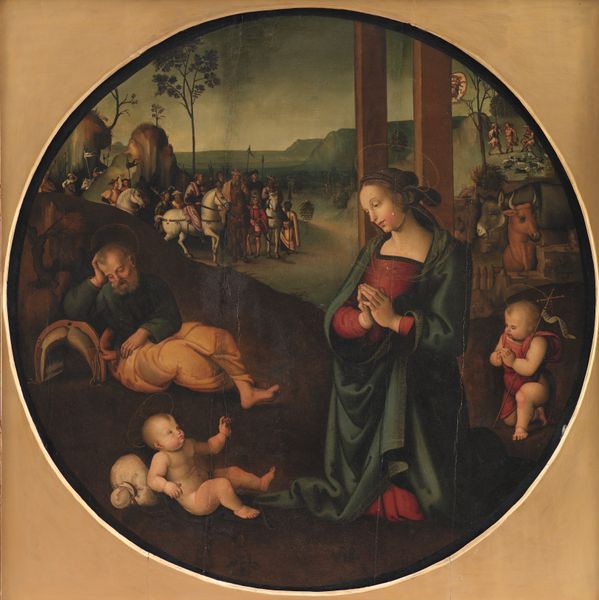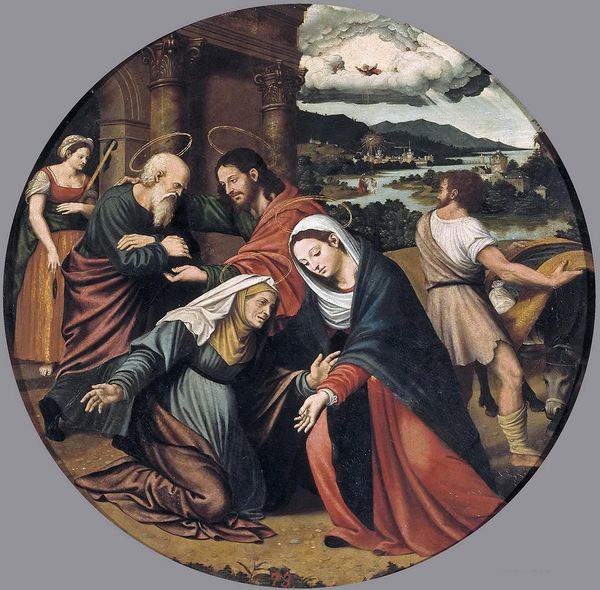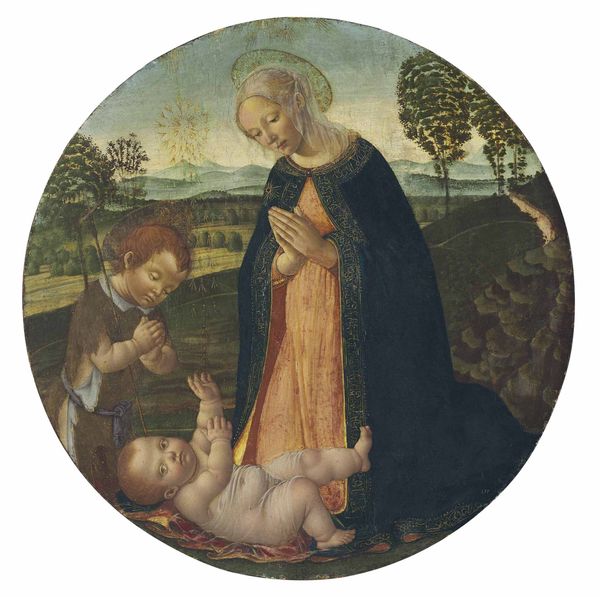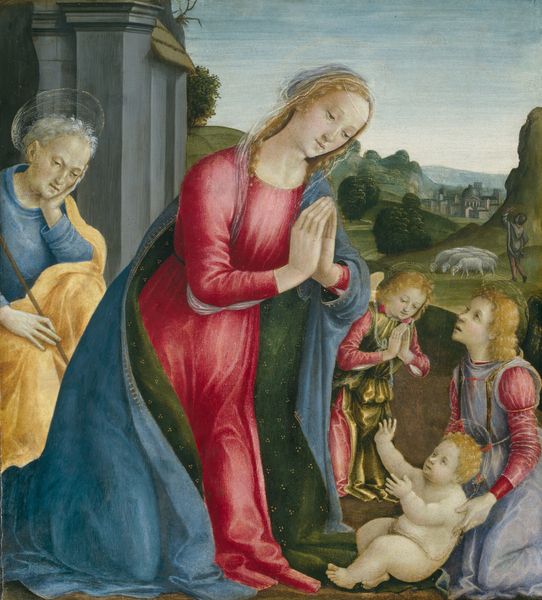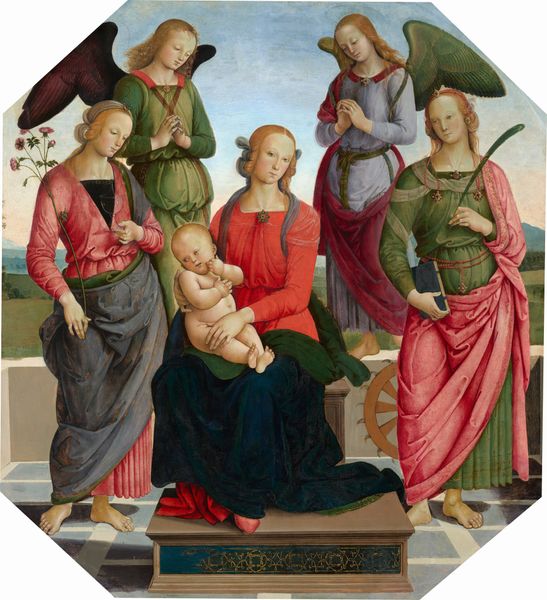
tempera, painting, oil-paint
#
allegory
#
narrative-art
#
tempera
#
painting
#
oil-paint
#
landscape
#
perspective
#
figuration
#
oil painting
#
history-painting
#
italian-renaissance
#
early-renaissance
Copyright: Rijks Museum: Open Domain
Editor: So, this tondo, "The Adoration of the Christ Child," thought to be created by Cosimo Rosselli between 1485 and 1507 using tempera and oil, strikes me as both reverent and oddly intimate. The figures seem so self-contained, yet they all orbit this radiant infant. What catches your eye about it? Curator: Ah, yes! It's like peering into a memory, isn't it? Rosselli's work often has this hushed, almost dreamlike quality. For me, it's the dance between the figures. Notice how Mary’s posture is so elegant and poised, while the infant Christ almost tumbles out of the scene toward us? Are we, the viewers, perhaps being invited into the holy moment, sharing in its vulnerable exposure? And then, consider this contrast. Editor: The vulnerability of the Child compared to the formality around him? Curator: Precisely! It makes me wonder what Rosselli aimed to evoke with this contrast between formal reverence and such pure, unfettered human helplessness. It seems… complicated. What do you think the presence of nature has in the piece? Editor: It’s very prevalent. But the more I study this work, the more its initial, straightforward image starts to seem intentionally unsettling. Curator: Unsettling – yes! Perhaps because Rosselli's offering up a challenge to our own easy assumptions about beauty and faith. Editor: That's given me so much to think about; this wasn’t as straightforward as I thought. Curator: Exactly! It makes you consider, doesn't it? Every glance reveals new layers of feeling.
Comments
rijksmuseum over 2 years ago
⋮
Cosimo Rosselli was a successful independent master and teacher whose work is typical of artistic production in Florence during the second half of the 15th century. This Nativity scene, which has survived in remarkably good condition, is representative of the Florentine feel for design and colouration, while also showing Rosselli’s reaction to recently imported works by Flemish painters.
Join the conversation
Join millions of artists and users on Artera today and experience the ultimate creative platform.
